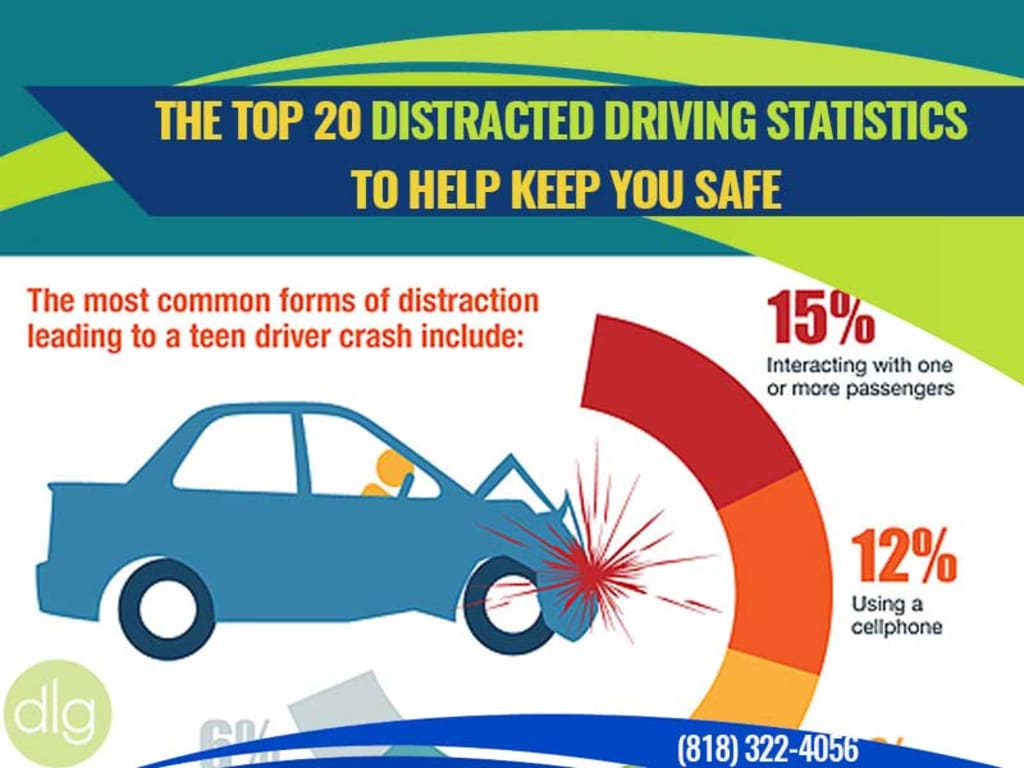The Case for Stricter Penalties on Texting While Driving - A Get Drivers Ed Perspective
Tougher Texting While Driving Laws - Get Drivers Ed's Viewpoint

Texting while driving is an alarming and escalating issue that poses a significant threat to road safety. At Get Drivers Ed, we place a strong emphasis on the dangers of distracted driving in our drivers ed courses. In this article, we delve into the compelling reasons why tougher penalties are imperative to combat this perilous behavior effectively.
Chapter 1: Understanding the Need for Tougher Penalties
Rising Accidents and Fatalities: Statistics paint a grim picture of the impact of texting while driving on road safety. The data reveals a substantial increase in accidents and fatalities attributed to this dangerous habit. These alarming numbers underscore the urgent necessity for stricter enforcement and penalties.
Deterrence Effect: Tougher penalties serve as a potent deterrent against texting while driving. For many drivers, especially young and inexperienced ones, the fear of legal consequences can dissuade them from engaging in this risky behavior. The prospect of fines, license suspensions, or even jail time can discourage individuals from reaching for their phones while behind the wheel.
Public Awareness: Heightened punitive measures draw attention to the gravity of the issue, making the public more aware of the dangers associated with distracted driving. Public awareness campaigns coupled with strict penalties can reinforce the message that texting while driving is not only socially unacceptable but also a reckless act that endangers lives.
Aligning with Drunk Driving Laws: Comparing texting while driving to drunk driving laws can underscore the severity of the offense. Driving under the influence (DUI) laws have long been in place to combat impaired driving, and they come with substantial penalties. By aligning penalties for texting while driving with those for DUI, lawmakers send a clear message that the dangers of distracted driving are on par with the perils of drunk driving.
Drivers Ed and Responsible Driving: At Get Drivers Ed, we advocate for responsible driving practices and support measures that promote road safety for all. Stricter penalties on texting while driving align with our mission to educate and prepare drivers to make responsible choices behind the wheel.
Chapter 2: The Impact of Stricter Penalties
Reduction in Distracted Driving Incidents: One of the most significant impacts of stricter penalties is the reduction in distracted driving incidents. When potential consequences become more severe, drivers are more likely to think twice before texting while driving. This leads to fewer instances of distracted driving and, consequently, fewer accidents and injuries on the road.
Enhanced Accountability: Tougher penalties hold drivers more accountable for their actions. Knowing that they can face severe consequences for texting while driving reinforces the idea that safe and responsible driving is a personal responsibility. This heightened accountability can result in a more conscientious driving culture.
Safer Roads for All: Ultimately, the implementation of stricter penalties contributes to safer roads for everyone. Pedestrians, cyclists, and passengers are at less risk when drivers are focused on the road. Safer roads mean fewer accidents, injuries, and fatalities, resulting in an overall improvement in road safety.
Chapter 3: The Role of Education
While tougher penalties are a critical component of addressing texting while driving, education also plays a vital role. Drivers ed programs, like those offered by Get Drivers Ed, are instrumental in raising awareness about the dangers of distracted driving. These programs educate new drivers about the risks, consequences, and alternatives to texting while driving.
Promoting Responsible Behavior: Drivers ed courses emphasize the importance of responsible behavior behind the wheel. Students are educated about the dangers of texting while driving, the legal implications, and safer alternatives, such as pulling over to send a message or using hands-free technology.
Changing Attitudes: Education has the power to change attitudes and perceptions about texting while driving. Through interactive lessons and real-world scenarios, drivers ed programs can challenge the misconceptions and social norms that contribute to this dangerous behavior.
Encouraging Safe Choices: Drivers ed instructors encourage students to make safe choices on the road. By instilling good habits and emphasizing the potential life-altering consequences of distracted driving, these programs help create a generation of more responsible drivers.
Chapter 4: Conclusion
Tougher penalties on texting while driving are not only necessary but also a crucial step toward safer roads. The rising incidents of accidents and fatalities associated with distracted driving demand urgent action. Stricter enforcement and penalties, along with comprehensive drivers ed programs, can contribute to a cultural shift towards responsible driving.
At Get Drivers Ed, we remain committed to educating our students about the perils of distracted driving and instilling in them the importance of making safe choices behind the wheel. Our drivers ed courses incorporate these critical lessons, equipping new drivers with the knowledge and skills needed for a safer driving experience.
To learn more about our comprehensive drivers ed courses and how we address distracted driving, visit our courses page, or contact us at [email protected] or +1 (877) 779-3336. Together, we can make our roads safer by curbing the dangerous practice of texting while driving.
About the Creator
Get Drivers Ed
Discover expert tips, driving safety insights, and the latest trends from Get Drivers Ed. Your online guide to mastering the road. Learn, drive, and lead!






Comments
There are no comments for this story
Be the first to respond and start the conversation.